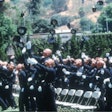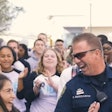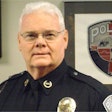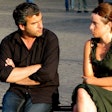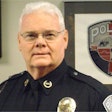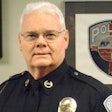Often we old dudes sit around and become melancholy about the "good old days." Back then, we had less technology, fewer rules and regulations, fewer lawsuits, less grey hair and so forth. We could run faster and work harder.
If you're a Field Training Officer (FTO) or supervisor, don't let your whimsical yearning for the past cloud your recruits' progress and learning.
The young cadets and field training recruits you're training today are living in their good old days! So don't ruin it for them. How could we spoil this, you ask? By going back into your memories and dragging up old selective memories that you suppressed.
Let's not relive the past. Instead, listen to the recruits' questions and help them. I can recall several questions that were fired at me from the old dinosaurs of my youth. Let's go over a few.
Why did you join this department, kid?
It doesn't matter if the department is your recruit's hometown. It may have been the only place they could land a job. That recruit made the correct decision for themself. It matters not what this old guy thinks, you did the right move. For the old dude or dudette, if you're distressed with your career that has been in the dumps, don't spread your hate and discontent. Second thoughts about career decisions can be detrimental.
This used to be a great agency/job but now it really sucks!
Once again, we have someone whose career took a spiral into the dumpster. What you were looking for and didn't find may be entirely different than what this young officer is seeking. Give the recruits an opportunity. Learning is best when the recruits get to savor life for themselves. Don't let your jaded views cloud their vision.
Forget that college crap and academy stuff. I'll teach you what you need to know.
Really? Let me remind you. The true role of the FTO is as a direct link from academy and life learning to real-world applications. I've been in the company of some of the finest FTOs in the world. I don't think they can give you more than your parents, your formal education, life lessons learned along the way, and police academy curriculum.
The FTO is the major connection between this and practical and tactical application of all of the knowledge, skills, and abilities you bring with you. It's important, but don't forget what you bring to the game. Besides, if it was this way, we would not have an academy, just the FTO. So, make it all work for your maximum learning experience.
Why did you want to be a cop? You should have become a (fill in the blank).
Every department has at least one old grouchy officer who seems to know where your station in life should have been. I usually call them the vocational prophets—the ones who know about occupational placement better than your high school guidance counselors. Great cops feel that they've entered a vocation or a true calling rather than an occupation for a paycheck. These are the professionals who feel they've never worked a day in their life and are called to perform. This has a philosophical tone about it, but there is truth in it. If you have the deep desire to make it in this profession, don't let a grumpy old cop ruin your view of the career horizon.
Face it, there are naysayers everywhere you go. You've worked hard to get the job, make it through the academy, and feel great about your new career. Work hard, train hard, and don't let them cloud your bright future!










